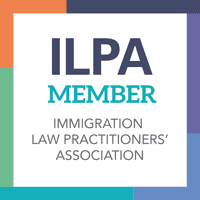
Fees, Immigration News, News, Visas
The Ultimate Guide to Home Office Visa Fees: What You Need to Know
Introducing the Ultimate Guide to Home Office Visa Fees: What You Need to Know. Whether you're seeking a work visa, spouse visa, or student visa, navigating the intricacies of the UK's Home Office visa fees is crucial. In this comprehensive guide, we'll break down everything you need to know about the costs involved in obtaining a visa, helping you make informed decisions and plan your budget accordingly.
At UK Visas, we understand the importance of clear and accurate information when it comes to visa fees. That's why we've created this guide to provide you with the most up-to-date details on the fees associated with various visa types. From the application fees to the healthcare surcharges, we'll walk you through each expense step by step, ensuring you have a complete understanding of what to expect.
Whether you're an employer seeking to sponsor a skilled worker or an individual exploring the options for bringing your family to the UK, this guide is your go-to resource for understanding visa fees. Stay tuned as we dive deep into the world of Home Office visa fees and equip you with the knowledge you need to successfully navigate the immigration process.
Different types of visa fees
When it comes to Home Office visa fees, it's important to understand that the costs can vary depending on the type of visa you are applying for. There are different categories of visas, such as work visas, spouse visas, student visas, and more. Each category has its specific fees associated with it. Let's take a closer look at some of the common types of visa fees you may encounter:
1. Application Fees: This is the basic fee that you must pay when applying for a visa. It covers the administrative costs of processing your application and conducting the necessary checks. The application fee can vary depending on the type of visa you are applying for and the duration of your stay in the UK.
2. Immigration Health Surcharge: In addition to the application fee, some visa categories require you to pay an immigration health surcharge. This fee is designed to contribute towards the cost of healthcare services provided by the National Health Service (NHS). The amount you need to pay will depend on the length of your visa and whether you are applying as an individual or as a family.
3. Priority Service Fees: If you need your visa application to be processed faster than the standard processing time, you may opt for the priority service. This service comes with an additional fee, which can vary depending on the type of visa and the processing time you require. It's important to note that not all visa categories offer a priority service.
4. Premium Service Fees: For certain visa categories, you may have the option to use the premium service, which allows you to have your application processed in person at a designated centre. This service comes with an extra fee, and the cost will depend on the type of visa and the level of service you choose.
Remember, these are just a few examples of the different types of visa fees you may encounter. It's crucial to research the specific requirements and fees associated with the visa category you are interested in.
Changes in visa fees
Visa fees are subject to change, and it's important to stay updated on any changes or updates made by the Home Office. The UK government periodically reviews and adjusts visa fees to reflect the cost of providing immigration services. It's crucial to consult the official Home Office website or seek professional advice to ensure you have the most accurate and up-to-date information regarding visa fees.
Changes in visa fees can occur for various reasons, such as inflation, policy changes, or the need to cover additional administrative costs. It's essential to factor in the possibility of fee changes when planning your visa application. Being aware of potential changes can help you budget accordingly and avoid any surprises during the application process.
The Home Office takes several factors into consideration when determining visa fees. These factors can vary depending on the type of visa you are applying for. Here are some common factors that may influence the cost of your visa:
1. Duration of Stay: The length of time you plan to stay in the UK can impact the visa fees. Generally, longer durations may be associated with higher fees.
2. Type of Visa: Different visa categories have different fee structures. The requirements and costs associated with a work visa will differ from those of a spouse visa or a student visa.
3. Processing Time: If you require expedited processing for your visa application, you may have to pay an additional fee. The faster you need your visa, the higher the priority service fee may be.
4. Number of Dependents: If you are applying for a visa with dependents, such as a spouse or children, there may be additional fees for each dependent included in the application.
5. Nationality: In some cases, the country of your nationality can impact the visa fees. This may be due to reciprocal agreements or specific immigration policies between the UK and your home country.
It's important to carefully consider these factors and their potential impact on visa fees when planning your immigration journey. Understanding the criteria used to determine fees can help you estimate the overall cost and make informed decisions.
Common visa fee misconceptions
When it comes to visa fees, there are several misconceptions that can lead to confusion and misunderstandings. Let's address some of the most common misconceptions to ensure you have accurate information:
1. Visa fees are refundable if the application is rejected: It's important to note that visa fees are generally non-refundable, even if your application is rejected. The fees cover the administrative costs of processing your application, regardless of the outcome.
2. All visa categories have the same fees: Each visa category has its own fee structure based on the specific requirements and costs associated with that category. It's essential to research the fees specific to the visa category you are interested in.
3. Visa fees cover all costs associated with the visa application: While visa fees cover the administrative costs of processing your application, there may be additional costs to consider. These can include translation fees, document certification fees, and other related expenses.
4. Visa fees are fixed and never change: Visa fees are subject to change, and it's important to stay updated on any fee adjustments made by the Home Office. Relying on outdated fee information can lead to errors in budgeting and planning.
By understanding these common misconceptions, you can ensure that you have accurate expectations and avoid any surprises or misunderstandings regarding visa fees.
Tips for saving money on visa fees
Applying for a visa can be a significant financial investment. However, there are ways to save money and reduce the overall cost of the application process. Here are some tips to help you save money on visa fees:
1. Plan Ahead: Start the visa application process early to avoid any rush fees or additional costs associated with expedited processing. Planning ahead allows you to take advantage of standard processing times and avoid unnecessary expenses.
2. Choose the Right Visa Category: Research and choose the visa category that best suits your needs. Applying for the correct visa category from the start can save you from having to reapply or pay additional fees later on.
3. Avoid Mistakes on the Application: Carefully review and double-check your visa application to ensure it is complete and accurate. Mistakes or omissions can result in delays or even rejection, which may require you to pay additional fees for a reapplication.
4. Consult with an Immigration Expert: Seeking professional advice can help you navigate the visa application process more efficiently and effectively. An immigration expert can provide guidance on the most cost-effective approach and help you avoid unnecessary expenses.
5. Consider Visa Fee Exemptions: Some visa categories may offer fee exemptions or reduced fees for certain individuals or circumstances. Research whether you may qualify for any exemptions or discounts to reduce your overall visa fees.
By implementing these tips, you can minimize the financial impact of visa fees and ensure a smoother and more cost-effective application process.
Visa fee payment methods
The Home Office provides various payment methods for visa fees to accommodate different preferences and situations. Here are the common methods you can use to pay your visa fees:
1. Online Payment: The most convenient and widely used method is to pay your visa fees online. This can be done through the official Home Office website, where you can securely make a payment using a debit card, credit card, or electronic funds transfer.
2. Bank Transfer: If you prefer to make a direct bank transfer, the Home Office provides bank account details for this purpose. Ensure you accurately follow the instructions provided to avoid any delays or payment errors.
3. Postal Order: In some cases, you may be required to pay your visa fees by postal order. This involves purchasing a postal order from a post office or a financial institution and mailing it along with your application.
4. Cash Payment: Cash payments are generally not accepted for visa fees, except in specific circumstances where no other payment method is available. It's important to check the Home Office guidelines to determine if cash payment is an option for your particular visa category.
It's crucial to carefully follow the payment instructions provided by the Home Office to ensure your visa fees are paid correctly and promptly. Failure to comply with the payment requirements can result in delays or rejection of your application.
Resources for checking current visa fees
To obtain the most accurate and up-to-date information on visa fees, it's essential to consult reliable resources. Here are some official sources you can use to check the current visa fees:
1. Home Office Website: The official Home Office website provides comprehensive information on visa fees, including the specific fees associated with each visa category. The website is regularly updated to reflect any changes or adjustments in visa fees.
2. Visa Application Centres: Visa application centres and processing centres can provide information on the current visa fees. You can visit their websites or contact their customer service for the latest fee details.
3. Immigration Advisors and Solicitors: Consulting with immigration advisors or solicitors who specialize in visa applications can provide you with accurate and up-to-date information on visa fees. They can also guide you through the application process and ensure that you have all the necessary information for a successful application.
By using these resources, you can access reliable information and avoid any potential misinformation or outdated fee information.
Additional costs to consider when applying for a visa
While visa fees are a significant component of the overall cost, there are additional expenses to consider when applying for a visa. These costs can vary depending on individual circumstances and the specific visa category. Here are some common additional costs to keep in mind:
1. Translations and Document Certification: If your supporting documents are not in English, you may need to have them professionally translated. Additionally, some documents may require notarization or certification, which can incur additional costs.
2. Travel Expenses: Depending on your location and the visa category, you may need to travel to a visa application centre or attend an interview. These travel expenses, including transportation and accommodation, should be factored into your budget.
3. Biometric Appointment Fees: For certain visa categories, you may need to attend a biometric appointment to provide your fingerprints and facial photograph. There may be additional fees associated with these appointments.
4. Supporting Documents: Gathering the necessary supporting documents for your visa application can involve expenses such as obtaining new passports, police clearance certificates, or medical reports.
5. English Language Tests: For some visa categories, such as student visas or work visas, you may be required to take an English language test. The cost of these tests should be considered when budgeting for your visa application.
It's important to thoroughly research the specific requirements and additional costs associated with your chosen visa category. By accounting for these expenses, you can avoid any financial surprises and ensure that you have a realistic budget for your visa application.
Conclusion and final thoughts
Obtaining a visa can be a complex process, and understanding the associated fees is crucial for a successful application. In this comprehensive guide, we have explored the various types of visa fees, factors that determine fees, common misconceptions, and tips for saving money. We have also provided resources for checking current visa fees and highlighted additional costs to consider.
By being well-informed about the visa fee structure, you can effectively plan your budget, avoid unnecessary expenses, and streamline your visa application process. Remember to stay updated on any changes in visa fees and consult reliable resources for the most accurate information.
At UK Visas, we are committed to providing you with the latest information and expert guidance on visa fees and immigration matters. Our team of experienced professionals is here to assist you every step of the way. Contact us today to get started on your visa application journey and ensure a smooth and successful process.












